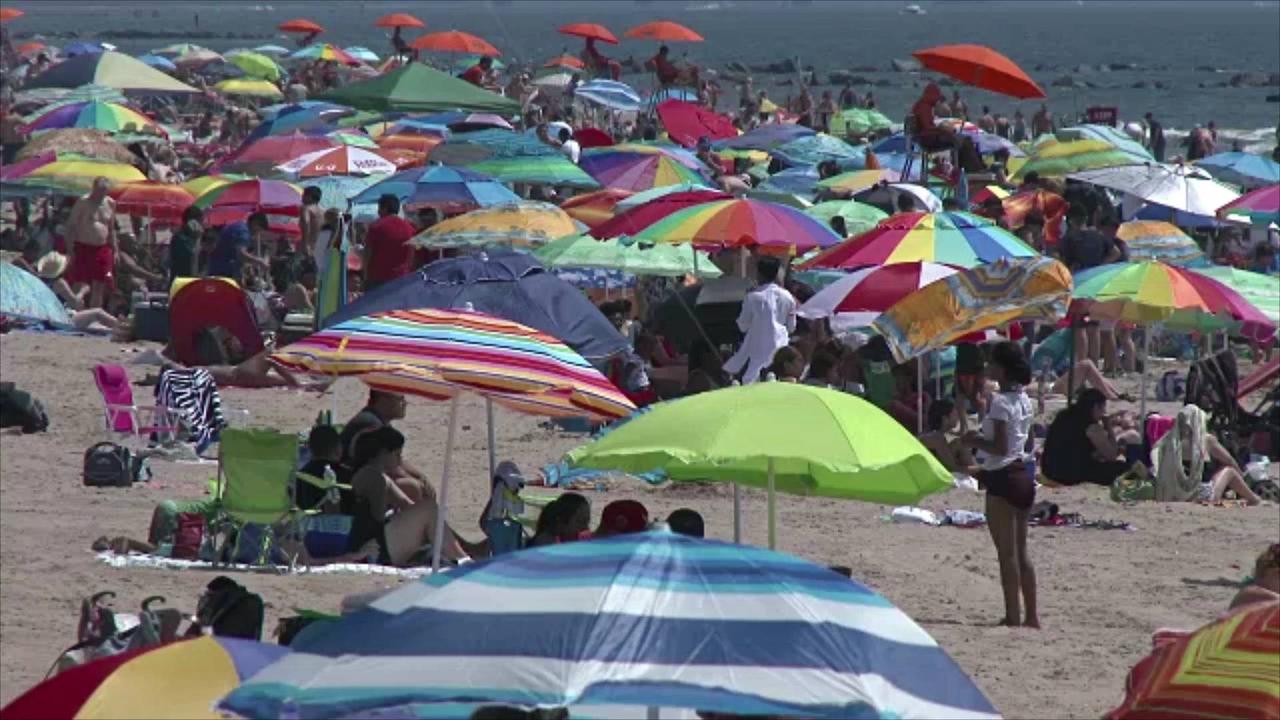
Record-Breaking Heatwave , Impacting Over One-Third, of US Population.
'The Guardian' reports that over 100 million Americans have been advised to stay indoors as record-breaking heat sweeps the nation.
By June 15, as many as 107.5 million people, over a third of all the people in the United States, have been warned of potentially lethal extreme heat and humidity.
By June 15, as many as 107.5 million people, over a third of all the people in the United States, have been warned of potentially lethal extreme heat and humidity.
Experts warn that such extreme temperatures could soon become the norm amid the worsening climate crisis.
According to the National Weather Service, the heatwave spans from the Gulf Coast to the Great Lakes.
According to the National Weather Service, the heatwave spans from the Gulf Coast to the Great Lakes.
Over 125 million people have been put under heat alerts, heat advisories and excessive heat warnings.
This is a day where not only folks who are susceptible to heat-related illnesses, but really just about anybody that’s going to be outside for an extended period of time is at risk for heat-related illnesses, Matt Beitscher, National Weather Service meteorologist, via CNN.
Record-high temperatures were set across the country, especially in the Southwest.
In Las Vegas, temperatures reached a scorching 109 degrees Fahrenheit, tying a record set back in 1956.
In Denver, temperatures surpassed 100 degrees Fahrenheit, tying records for the hottest temperature and the earliest day to break 100 degrees Fahrenheit.
.
In Denver, temperatures surpassed 100 degrees Fahrenheit, tying records for the hottest temperature and the earliest day to break 100 degrees Fahrenheit.
.
In Phoenix, temperatures have been hovering around 110 degrees Fahrenheit for four consecutive days.
.
These are significant temperatures and temperatures that are dangerous to everyone, if you don’t take precautions, Alex Tardy, National Weather Service meteorologist, via 'The Guardian'
